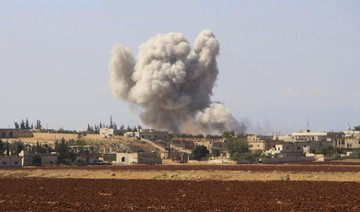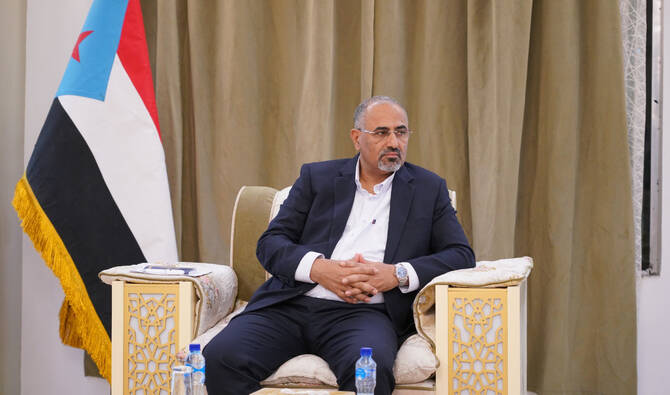JEDDAH/SOCHI: Russia ordered the Assad regime on Monday to call off a planned offensive in Syria's Idlib region after reaching a deal with Turkey on a demilitarized zone in the province.
The 20-kilometer zone along the line of contact between the armed opposition and regime troops will be established by Oct. 15 and policed by troops from Russia and Turkey, Russian President Vladimir Putin said after a meeting with Turkish President Recep Tayyip Erdogan in the Black Sea resort city of Sochi.
The leaders of the two countries are on opposite sides of the deadly seven-year conflict but remain key global allies.
Putin said he believed the agreement on Idlib could hasten a final resolution of the Syrian war.
“We agreed that practical implementation of the steps we plan will give a fresh impetus to the process of political settlement of the Syrian conflict and will make it possible to invigorate efforts in the Geneva format and will help restore peace in Syria,” he said after the talks at his residence in Sochi.
He earlier said that the meeting would help “find solutions for where there are none yet.”
“I think not just the region, but the entire world has eyes focused on our meeting today,” Erdogan said for his part, in comments that were translated into Russian.
Russia-backed forces of the Syrian regime have massed around Idlib province in recent weeks, sparking fears of an imminent air and ground attack to retake the last major opposition bastion.
The United Nations and non-governmental organizations have repeatedly warned that such an offensive would unleash a “bloodbath” and “humanitarian catastrophe” in Idlib, which is home to three million people.
Turkey has intensified negotiations with Russia to avert a possible attack, repeatedly calling for a cease-fire.
Erdogan and Putin met previously on September 7 in Tehran for a three-way summit with Iranian President Hassan Rouhani that saw the Russian and Turkish leaders openly disagree over how to deal with the rebel stronghold, which borders Turkey.
“The situation with Idlib is acute,” Kremlin spokesman Dmitry Peskov told RIA Novosti state news agency ahead of the talks Monday.
“There are certain differences in approaches” between the leaders, he added.
The two men met as Turkey’s military has sent significant reinforcements to Idlib in recent weeks, according to media reports.
They were sent over the border Sunday and included tanks and other hardware, with a convoy of 50 military vehicles, according to the Hurriyet daily.
Russia and Iran are key allies of Syrian President Bashar Assad’s regime.
Turkey however backs opposition fighters seeking the ouster of the Syrian leader, and has said a large-scale offensive against the rebels could trigger a mass exodus toward its border.
Russian and Syrian air strikes, artillery fire and barrel bomb attacks have killed more than 30 civilians across the province in the past month, according to the Syrian Observatory for Human Rights.
The bombardment has slowed over the past week, however, and Russian Foreign Minister Sergei Lavrov said Friday that the Syrian regime is not preparing a major offensive against Idlib, adding that Moscow will do everything to protect civilians.
“What is being presented at the moment as the beginning of a Russian-backed offensive by Syrian forces is not a faithful representation of the facts,” Lavrov said.
“We are doing everything to ensure that the civilian population would not suffer,” he said.
Turkish Foreign Minister Mevlut Cavusoglu on Friday said Turkey was ready to cooperate with anyone in the fight against terror groups in Syria, but criticized the Damascus regime for using the presence of jihadist groups to legitimize a possible operation in Idlib.
The Syrian civil war erupted in 2011, when the Assad regime launched a vicious crackdown on pro-democracy protests that evolved into a complex conflict involving jihadists and world powers.
It has killed an estimated 360,000 people and forced millions to flee their homes.















